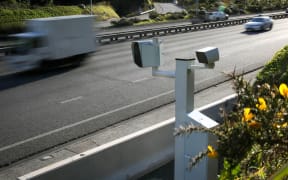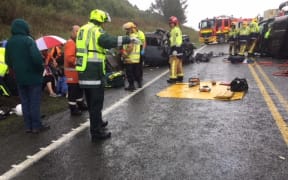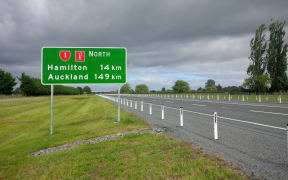Authorities could have identified a rising road toll earlier and done more to save lives, a researcher says.
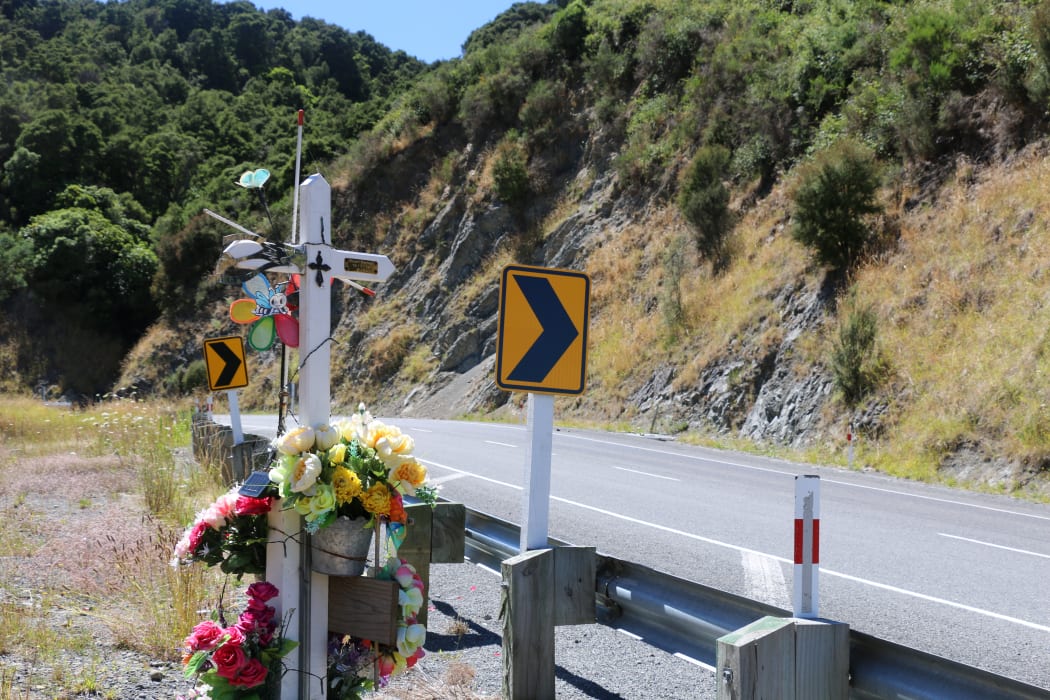
Photo: RNZ
New Zealand Initiative research fellow Sam Warburton, who studies transport and infrastructure, said authorities should have identified the rising trend in road deaths sooner and could have saved lives by acting faster to improve safety.
And the entire state highway network could have had median barriers put in place for half the cost of one of the government's roads of national significance, he said.
The government launched the Safer Journeys action plan in 2010 to improve road safety and reduce road deaths and injuries.
In the past 12 months fatal crashes have claimed 371 lives. At the same time last year, the roads had claimed 327 lives.
Four people died in a head-on crash near Taupō last week.
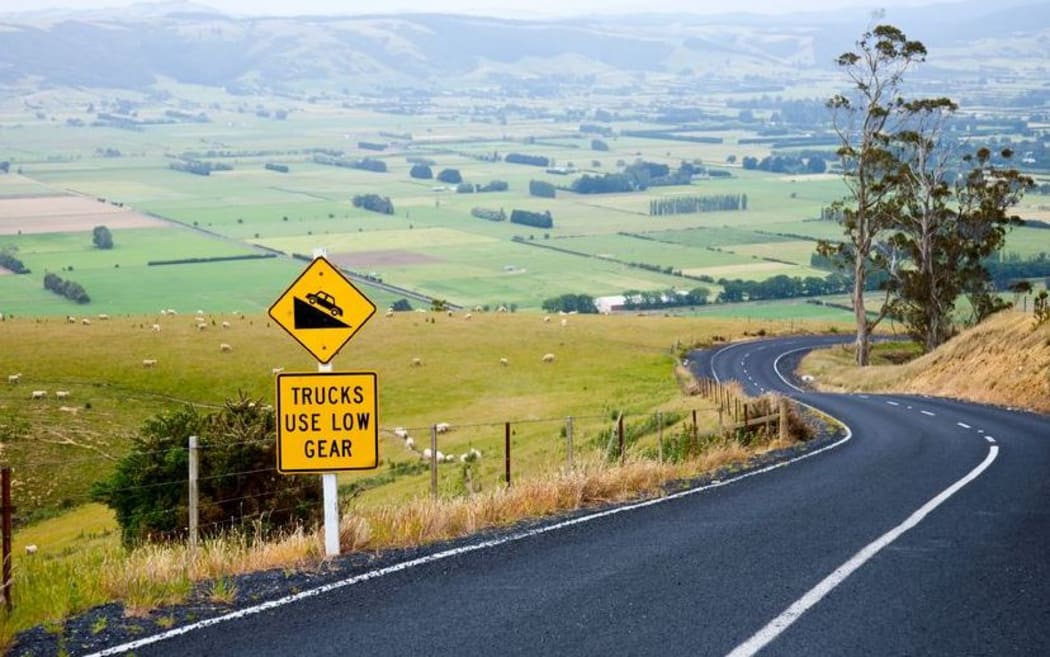
Photo: 123RF
Mr Warburton, a former Ministry of Transport staffer, said the cost of driver error or incompetence need not be lives. Safer Journeys funding could be put to better use by building more median barriers and other safety features.
Major roads - so-called roads of national significance - cost about $1.6 billion each, he said.
"We've done seven of them over the last 10 years. The cost of putting median barriers up and down our state highway network is half of one of those seven."
Road use was up, and so was the risk, he said.
"This year for example there will be about 80 more deaths than there would have been if the 2013 fatality rate had continued."
Mr Warburton said he was at a loss to explain the reasons behind the startling rise in road deaths.
"We could have picked up this trend at least a year, maybe two, earlier and been responding to it back then."
In a blog post, Mr Warburton said the fatality rate - deaths per kilometre driven in New Zealand - was 41 percent higher in 2017 than in 2013. Some regions fared worse.
"While the long historical downward trend in the road toll was apparent across almost all regions, the increase of the past few years is not. Increased safety risks appear to be concentrated in the upper North Island regions of Waikato, Bay of Plenty, Auckland and Northland and the lower South Island regions of Otago and Southland.
"The public debate that has erupted over the past two weeks is welcome, though it is sad that it took horrific accidents and many lives to trigger it. What we now need is a structured and responsive way to address these issues."
Ministry of Transport mobility and safety manager Brent Johnston said that without Safer Journeys the road toll would be higher.
"It's incredibly sad and frankly disappointing to see the overall direction in the road toll. But I think we can say that the actions that have been taken have had an impact and it could have been a heck of a lot worse had that not been the case."
He said everyone has a part to play - driving to the conditions, wearing seatbelts, not driving impaired.
"It's pretty hard to fathom that we still [have] such a high frequency of fatalities where people haven't been wearing seatbelts."
Speed limits don't match some road conditions - charity
A road safety charity is calling for changes to speed limits to help reduce the number of people killed on the roads.
Brake director Caroline Perry told Morning Report people not driving to the conditions and roads not being up to standard were likely factors in the recent spike in deaths.
Many roads have speed limits that did not match conditions and lowering the limit would help, she said.
"We have 100km/h speed limits on the open road when many of those roads really 70 or 80[km/h] is the maximum safe speed that's suitable.
"And so there's a lot more that we need to be doing and it needs to be happening more quickly in order to bring that road toll down."
Ensuring there were more separated cycleways and footpaths, and safer vehicles, would also help reduce the road toll, Ms Perry said.
